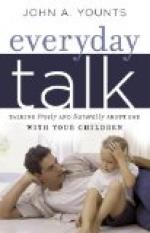If you are ever in doubt about the choice of books, you would do well to enlist the services of a literary friend, or ask the advice of a local librarian. But in any case, be on your guard against books and other publications of commonplace type, which can contribute nothing to the enrichment of your mind and life.
It is desirable that you should own the books you read. The sense of personal possession will give an interest and pleasure to your reading which it would not otherwise have, and moreover you can freely mark such books with your pencil for subsequent reference. It is also well to have a note-book conveniently ready in which to jot down useful ideas as they occur to you.
Here we come to the use of the pen. All the great orators of the world have been prolific writers in the sense of writing out their thoughts. It is the only certain way to clarify your thought, to test it in advance of verbal expression and to examine it critically. The public speaker should write much in order to form a clear and flowing English style. It is surprising how many of our thoughts which appear to us clear and satisfactory, assume a peculiar vagueness when we attempt to set them down definitely in writing.
The use of the pen tends to give clearness and conciseness to the speaker’s style. It makes him careful and accurate. It aids, too, in fixing the ideas of his speech in his mind, so that at the moment of addressing an audience they will respond most readily to his needs.
A well-furnished mind is like a well-furnished house. In furnishing a house we do not fill it up with miscellaneous furniture, bric-a-brac and antiques, gathered promiscuously, but we plan everything with a view to harmony, beauty, and utility. We furnish a particular room in a tone that will be restful and pleasing to the occupant. We choose every piece of furniture, rug, picture, and drapery with a distinct purpose in view of what the total effect will be.
So with a well-furnished mind. We must choose the kind of material we intend to keep there. It should be chosen with a view to its beauty, power, and usefulness. We want no rubbish there. We want the best material available. Hence the vital importance of going to the right sources for the furniture of our mind, to the great books of the world, to living authorities, to nature, to music, to art, to the best wherever it may be found.
The second essential of an effective public speech is knowing how to say it. This implies a thorough training in the technique of speech. There should be a well-cultivated voice, of adequate volume, brilliancy, and carrying quality. There should be ample training in articulation, pronunciation, expression, and gesture. These so-called mechanics should be developed until they become an unconscious part of the speaker’s style.
Your best opportunity for practice is in your everyday conversation. There you are constantly making speeches on a small scale. Public speaking of the best modern type is simply elevated conversation. I do not mean elevated in pitch, but in the sense of being launched upon a higher level of thought and with greater intensity than is usually called for by ordinary conversation.




